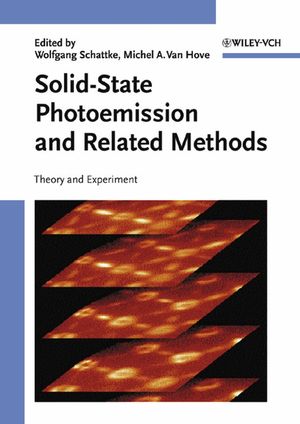Solid-State Photoemission and Related Methods: Theory and ExperimentISBN: 978-3-527-40334-9
Hardcover
515 pages
November 2003
 This is a Print-on-Demand title. It will be printed specifically to fill your order. Please allow an additional 15-20 days delivery time. The book is not returnable.
|
||||||
Photoemission is one of the principal techniques for the characterization and investigation of condensed matter systems. The field has experienced many developments in recent years, which may also be put down to important achievements in closely related areas.
This timely and up-to-date handbook is written by experts in the field who provide the background needed by both experimentalists and theorists. It represents an interesting framework for showing the connection between theory and experiment by bringing together different concepts in the investigation of the properties of materials.
The work addresses the geometric and electronic structure of solid surfaces and interfaces, theoretical methods for direct computation of spectra, experimental techniques for data acquisition, and physical models for direct data interpretation. It also includes such recent developments as full hemisphere acceptance in photoemission, two-electron photoemission, (e, 2e) electron diffraction, and photoelectron-electron/hole interaction.
This timely and up-to-date handbook is written by experts in the field who provide the background needed by both experimentalists and theorists. It represents an interesting framework for showing the connection between theory and experiment by bringing together different concepts in the investigation of the properties of materials.
The work addresses the geometric and electronic structure of solid surfaces and interfaces, theoretical methods for direct computation of spectra, experimental techniques for data acquisition, and physical models for direct data interpretation. It also includes such recent developments as full hemisphere acceptance in photoemission, two-electron photoemission, (e, 2e) electron diffraction, and photoelectron-electron/hole interaction.



